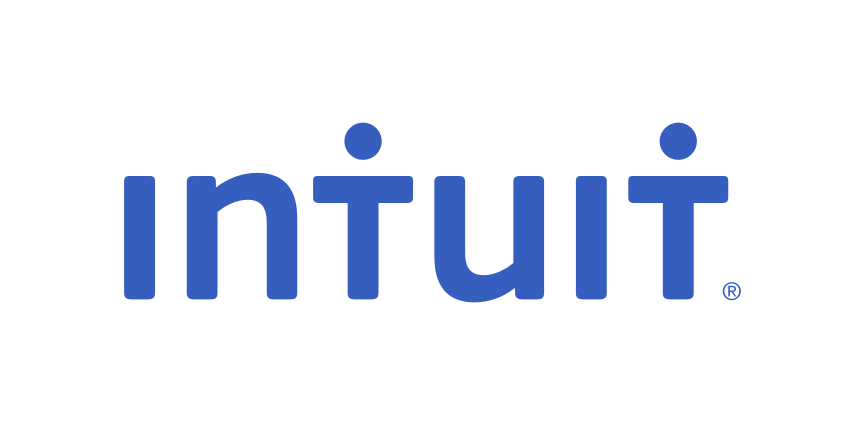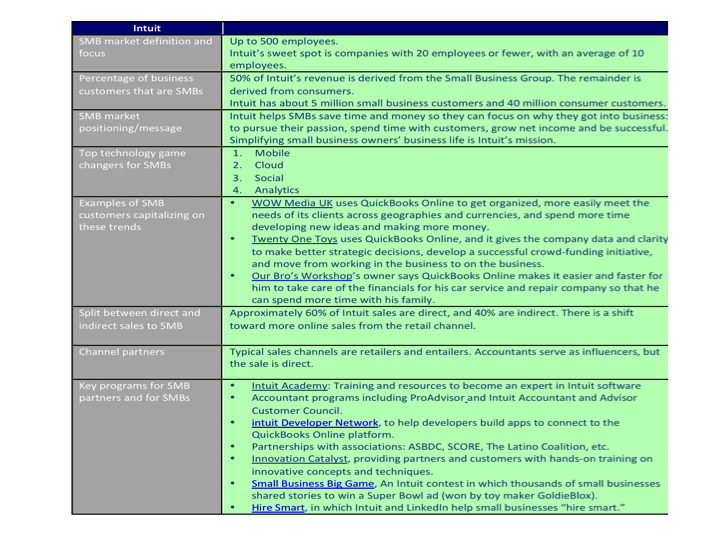This is the second post in a two-part blog series discussing Intuit’s strategy to help SMBs better capitalize on technology. The first, Intuit QuickBooks Connect: Where Small Business Is Big Business provides perspectives from Intuit’s 2014 QuickBooks Connect event. This second post, which is excerpted from SMB Group’s April 2014 report, Guiding Stars: Vendor Strategies to Bring Game-Changing Technology Trends to SMBs report, offers additional insights into Intuit’s approach.
 The writing is on the wall for any business: With customers and prospects racing into the digital, mobile, and social future at breakneck speed, SMBs must proactively deploy technology to improve both business processes and the customer experience. SMBs that figure out how to use technology to stay ahead of their customers’ demands will thrive, while those that don’t face extinction.
The writing is on the wall for any business: With customers and prospects racing into the digital, mobile, and social future at breakneck speed, SMBs must proactively deploy technology to improve both business processes and the customer experience. SMBs that figure out how to use technology to stay ahead of their customers’ demands will thrive, while those that don’t face extinction.
But there are lots of vendors and solutions out there ready to help you on your journey, and one-size-fit all doesn’t apply in SMB. Is Intuit a good fit for you? Read on for information and insights to help you decide.
Intuit’s Top Technology Game Changers for SMBs
Simplifying business life for small business owners is at the center of Intuit’s strategy. Intuit’s mission is to “consumerize” operational functions such as payroll, accounting and marketing so small businesses can focus more on conducting business and less on business process.
Intuit sees the cloud as critical to enabling this, and it views mobile as inextricably linked to the cloud. QuickBooks Online is Intuit’s platform to let SMBs engage from any device, anywhere, at any time to manage their finances and connect to other applications for additional functionality. Today, most SMBs are managing the business through both mobile and traditional desktop and notebook devices. Intuit’s platform can discover, facilitate and customize identity, relationships and roles depending on users’ choices.
Intuit also views the cloud as the foundation to facilitate collaborative, social engagement. For instance, Intuit’s Demandforce marketing solution lets SMBs synthesize social feeds, comments, ratings and reviews to better serve customers and enhance their brands.
Intuit wants to deliver the benefits of analytics and big data solutions to small businesses through its QuickBooks Online platform. Intuit observes aggregated behaviors across its more than 560,000 users to discover patterns and best practices. Using these insights, Intuit simplifies how tasks get done, and tailors processes for different types of businesses and user personas. This lets users set up applications and perform tasks more quickly and easily, and frees them to spend more time focusing on building their businesses.
Intuit is also embedding analytics into its solutions to help SMBs better understand where they should focus time. This builds more value by providing capabilities to identify trends and act on them. For instance, a dentist using Intuit’s Demandforce marketing solution can see when patients aren’t coming in for biannual check-ups, and set up automated reminders to boost regular visits instead of spending time making phone calls. When mundane tasks are automated, customer centricity can move to the forefront.
Changes in SMB Technology Expectations and Behavior
Intuit sees several major changes under way, including:
- Rising expectations for a “delightful” experience and total solution: Small businesses want to focus on their business, not on figuring out how to use software—whether in the cloud or on premises. Instead of piecing together product components, SMBs want more turnkey solutions, with capabilities to help them automatically integrate applications, and to connect with customers and suppliers. Intuit’s platform and developer network help small businesses extend the power of QuickBooks through third-party solutions by building data integration directly into their mobile and web apps. Project Harmony is a new initiative to make all Intuit solutions simpler and more “delightful” to use.
- Trust as an increasingly valuable currency: SMBs want technology solutions validated via “social proof,” meaning that vendors must engage in an authentic, ongoing conversation to develop and maintain their trust. Vendors must augment traditional word of mouth with digital word of mouth. Intuit is building trust in several ways, such as increasing involvement with small business associations, such as ASBDC, SCORE and The Latino Coalition, and Hire Smart, a partnership with LinkedIn to help small businesses improve hiring results. Intuit also recently sponsored the Small Business Big Game contest, awarding a Super Bowl ad to winner GoldieBlox.
- Better-informed advisors: Small businesses want the accountants and other professionals that help them with business decisions and processes to have a deeper view of their business, industry and other businesses like them. In addition to long-term accounting partner programs, Intuit recently introduced the Innovation Catalyst program to offer partners and customers hands-on training on innovative concepts and techniques.
- Going mobile: In the future, Intuit believes many small businesses will start with and stay exclusively with mobile, and will expect full access and capabilities to run their businesses via mobile devices. Intuit’s internal development and Intuit Developer Network are focused on providing a seamless mobile experience.
Perspective: Intuit as an SMB Technology Catalyst
With an installed base of more than 5 million small business customers, Intuit’s sphere of influence is enormous. Although Intuit’s legacy is that of a packaged software vendor, Intuit is now fully immersed in cloud and the mobile, social and analytics capabilities that cloud computing facilitates. QuickBooks Online subscriptions have grown by 30% over the past year—and should beat that growth this year now that Intuit has dropped the price from $19.95 per user, per month to $5—or the price of a fancy coffee. This should also help Intuit fend off recent small business accounting cloud entrants such as Wave and Xero. Intuit’s Developer Network has also bulked up. By connecting more partners and customers into this platform and to each other, small business can more easily reap the benefits of these technology trends.
With thousands of hours logged in “follow me home” visits to see how small businesses really work, Intuit also understands the importance of communicating that technology is a make-or-break business differentiator in the language that small businesses speak. Intuit doesn’t underestimate the hurdles it must jump to communicate this message through its web sites, advertising and influencers so that it resonates more meaningfully with small businesses. Instead of leading with technology, Intuit leads with how to take friction out of managing the business and engaging with customers.
But change is hard—especially in established small businesses, where owners are wearing many hats and juggling many challenges. To get past the “if it’s not broken, don’t fix it” mentality in the very small business market, Intuit must work doubly hard not only to further consumerize the solution experience, but also to help businesses immediately grasp how new technology solutions can help them make real business improvements.
Disclosure: Intuit is an SMB Group client and paid for most of my travel expenses to attend QuickBooks Connect.

